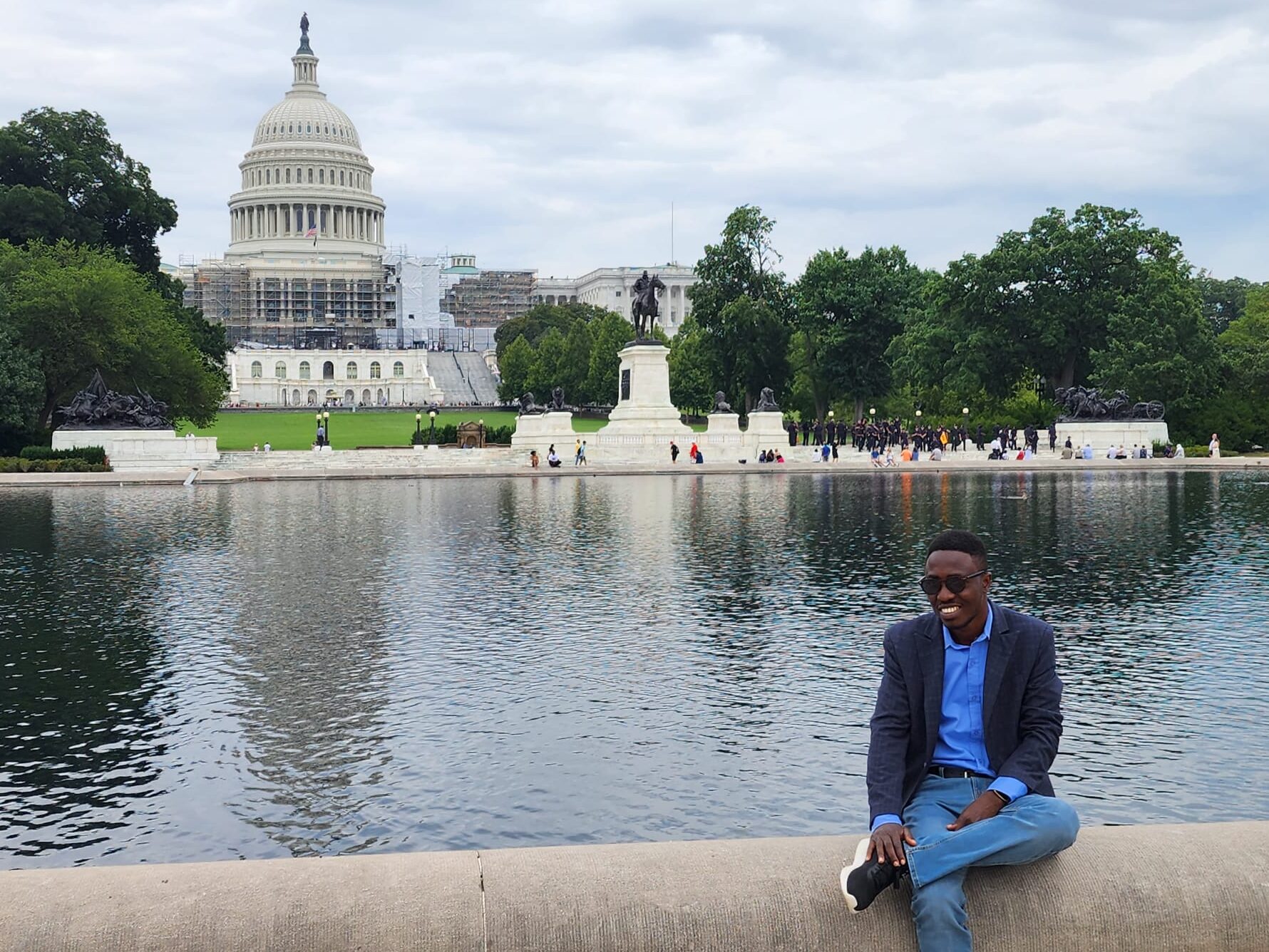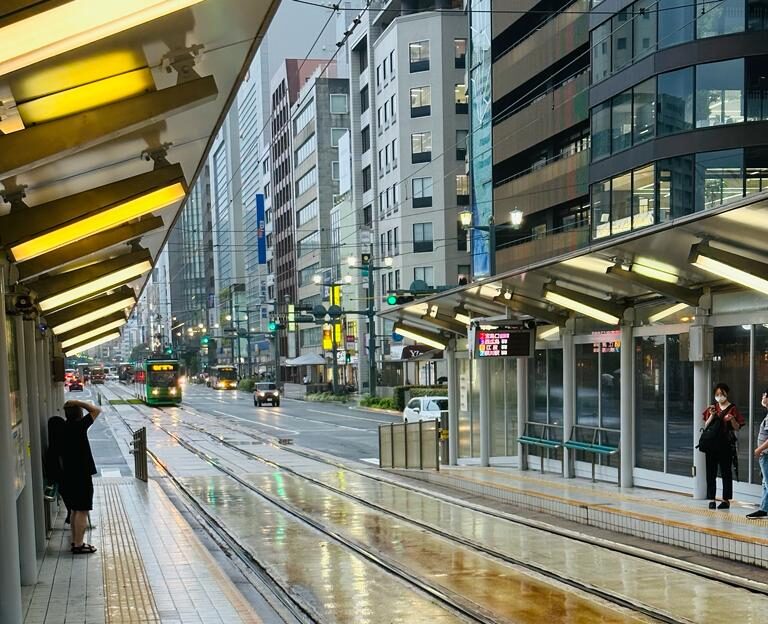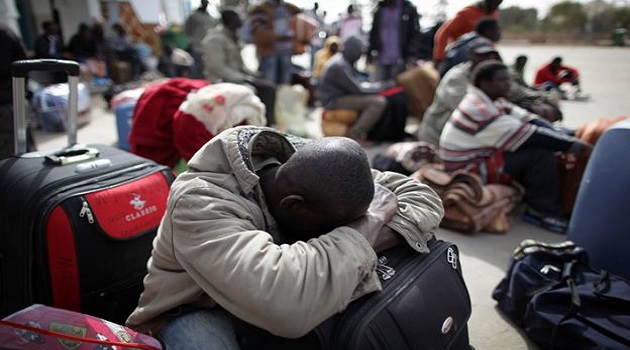Dream Chasers and Poverty Fighters: The Intriguing Tales Of Four Ghanaian Expatriates
Back in the day, youngsters, who mostly found themselves in rural areas, would pray for a bus fare to simply bring them to Accra, the country’s capital.
Accra, a rapidly growing city, is the economic centre of Ghana, home to a thriving business community, financial institutions, and a bustling central market.
However, the story is different. Now, the dream is to travel outside the country. For these youngsters, even the once-sought-after Accra has nothing to offer.
Recently, pictures and videos of long queues at the Canadian embassy surfaced online to show a sense of desperation.
A young man who had gone to the embassy sometime in September 2023 shared a picture that captured hundreds of people standing outside the premises of the centre in an anxious wait, hoping to get their document processed.

A 2021 Population and Housing Census data, for instance, revealed a staggering number of people leaving the country, with the youth being the dominant group.
The Ghana Statistical Service (GSS) Thematic Report on Migration revealed that more than 77% of those leaving the country to seek greener pastures elsewhere fall between the ages of 20-49.
The report further revealed that over 37% of Ghanaian immigrants went to Europe, with 23.7% relocating to America.
Also, more than a third (35.9%) of the migrants moved to settle permanently, while 24.9 percent also moved due to marriage/family reunification.
The report also indicated that while the majority of males travel for employment, their female counterparts migrate due to reasons related to marriage/family reunification.
A 2017 Afrobarometer survey has revealed that at least four in 10 Ghanaians have considered emigrating.
The study reveals that most of the potential emigrants are in search of more favourable economic prospects in a more suitable land.
According to the report, a majority of the people prefer to live outside Africa, with North America and Europe being the most preferred destinations.
The International Organisation for Migration (IOM), says the current global estimate is that there were around 281 million international migrants in the world in 2020, which equates to 3.6 percent of the global population.
Overall, the estimated number of international migrants has increased over the past five decades. The total estimated 281 million people living in a country other than their countries of birth in 2020 was 128 million more than in 1990 and over three times the estimated number in 1970.
It will be recalled that some 10,209 nurses sought clearance from the Ghana Registered Nurses and Midwives Association (GRNMA) Secretariat between January 1, and July 7, 2023, to leave the country for greener pastures.
Beyond the headlines and statistics, The Ghana Report aims to provide a comprehensive understanding of why Ghana’s sons and daughters are leaving in search of better prospects.
From the persistent challenge of youth unemployment to the allure of international education, the news desk will explore the push and pull factors fueling this exodus.
Here are conversations with four individuals who travelled either for work, school or marriage.
In August 2021, Prosper Kofi Senyo, a young scholar who was driven by the desire to become a Professor, had an opportunity to study abroad on a fully funded scholarship.
For him, it was a simple yet profound dream, and he sought an institution that would offer exposure and opportunities for growth.
He found solace in Michigan State University, a public land-grant research university in East Lansing, Michigan.
Mr Senyo’s decision to leave Ghana was fueled by a desire to follow his passion for academia.
In his words, “The path to becoming a Professor in Ghana is not easy”. He saw an opportunity in the United States, where scholarships and doctoral programs offered a clear pathway to achieving his goals.
His transition to life in the United States was not without its challenges.
He observed significant cultural differences between the two nations. In Ghana, communal bonds are strong, and people often engage in lively interactions with neighbours and friends. In contrast, the United States places greater emphasis on individualism and personal boundaries.
Mr Senyo encountered nuanced cultural differences in gender roles and social etiquette. He discovered that cultural norms regarding assistance and interaction differed from his Ghanaian upbringing.
“There are a lot of cultural differences. In Ghana, if you’re a man and you’re walking with a woman, you feel like you should lend a hand when the person is carrying something heavy. But in one instance, when I tried to help, she felt offended, as though I thought she was weak.
“Here, they also respect the elderly, physically challenged and vulnerable people. The first three seats in the bus have been reserved for the elderly and people who are weak. And even in schools, they have changing rooms for students who are mothers, so the system here offers equal opportunities for all,” he added.
Asked if he would consider coming back to Ghana after his PhD programme, Mr. Senyo said that would depend on the opportunities available here in Ghana compared to the numerous opportunities currently available in the United States.
However, he stressed that international travel alone does not guarantee success.
He urged young individuals to have a clear purpose and dream, emphasizing the importance of adding value to oneself. Prosper underscores that dedication, hard work, and excellence are essential ingredients for achieving one’s goals.

So far, Prosper has since secured multiple fellowships for academic excellence, each accompanied by financial rewards.
Additionally, he has authored and published five papers in conferences and journals, a testament to his commitment to research and scholarship.
For Desmond Tawiah, the pursuit of economic opportunities and a higher quality of life has led him to seek new horizons abroad.
Mr Tawiah, who left Ghana in May 2022, shares his motivations and experiences in Japan, shedding light on the challenges and rewards of living in a foreign land.
His decision to leave was primarily driven by concerns about financial prospects and employment opportunities.
As a National Service Scheme (NSS) person at Graphic Communications Group Limited, Mr Tawiah examined the financial landscape for entry-level workers in Ghana. He discovered that after covering essential expenses like rent and utilities, there was little left for marriage or further education.
“Usually most entry level jobs in Ghana for university graduates start paying from GH₵1,000. After covering the necessary expenses like rent, utility bills and others, I realised not much would be left for me to get married or further my education.
“Things looked messy, the situation in which I found myself. I realised that you’ve to be tagging along and all that, and you never know when you’re going to get employed so I left,” he said.
Mr Tawiah, who is currently studying International Peace and Co-existence at the Graduate School of Humanities and Social Sciences, Hiroshima University, in Japan, also cited limited scholarship opportunities in Ghana as a factor contributing to his departure.
Comparing the two countries, he observed significant differences — the organized transportation system and access to basic necessities left a positive impression on him.
His experiences in Japan have affirmed his belief that life can be easier with a well-structured system, efficient public transport, and accessibility to basic needs. The low crime rate in Japan has also contributed to his sense of security.

But life in Japan has not been all rosy. For Desmond, the language barrier and extensive paperwork in Japan can be challenging. Additionally, the reserved nature of Japanese society can lead to feelings of isolation.
Asked if he regrets leaving the country, he maintains that he does not regret his decision to leave Ghana, adding that he is willing to explore opportunities abroad further.
His desire to stay in Japan is fueled by the assurance that his basic necessities can be met. He hopes to inspire young people to consider opportunities beyond their home country, especially if their financial prospects are limited.
In October 2022, Leticia Bekoe, who hails from Kumasi, decided to try her luck in another country.
Madam Bekoe said she had nothing to show for her 10 years of active service in the health sector.
“I have nothing in my name,” she said. “Even the house I stay bears the name of another”.
Primarily, her decision to leave Ghana for the United Kingdom is because of economic hardship, consistent cedi depreciation, and a general system failure.
“One thing that kept me up at night was the future. As a young lady, all I wanted to do was work hard to be able to afford the basic necessities of life and at least have a little savings for the future. But that wasn’t the case. After checking my account balance consistently for six months, I realised I was always in debt and had a zero balance.
“I have never been the type to live an extravagant lifestyle or fancy parties and other luxuries, but I still had nothing left in my account. I noticed it would take me almost 80 years of working tirelessly to be able to get to where I want to get to in life so I had to restrategise.
“I mean, we pay taxes, but we don’t really see what exactly our taxes are being used for. But here, that is not the case, the system is working. Talk of their welfare system. Honestly, I am getting five times what I was getting in Ghana,” she said.
She added that even in instances where you’re over-taxed, you’ll be reimbursed.
However, all has not been rosy, she says the issue of racism still persists in some parts of the United Kingdom. Madam Bekoe hopes to return to Ghana someday.
The only thing she misses is her ‘fufu and light soup’.
Although a Ghanaian associate professor in the United States is enjoying his stay, he still hopes to return soon. Home will always be home, he said.
“God, in his own wisdom, decided to plant us in a country called Ghana. And if, for some reason, whether economic or educational, we decide to explore other countries, we should always have at the back of our mind that we have a home and that home cannot be exchanged for anything.
“So, in as much as we want to come here and get an education or for money, we should know that we will never feel the same way we feel at home, so if you’re coming here, make sure you have the plan to go back to where God planted you. You can never be prouder in somebody’s country than where you were born.
“Sometimes, I feel very sad when I meet other Africans who think that they don’t ever wish to come back to Ghana. I feel very sad. I don’t know what informs that reasoning. No matter how comfortable you are, you were not born here,” he said.
The associate professor, who has decided to remain anonymous, left Ghana in August 2019 with the intention to explore and advance his career prospects.
He added that the inequalities that existed in various organisations were a contributing factor to his decision to leave the country.



